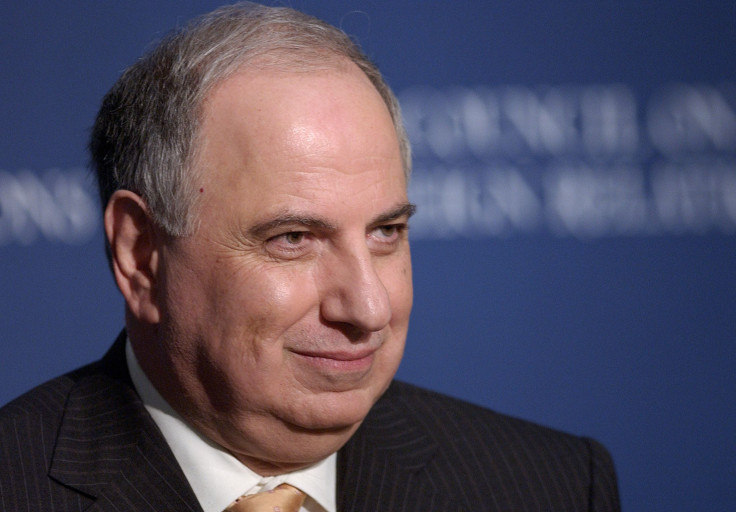Can Ahmad Chalabi Take Over Iraq?

The United States’ desire to find someone -- anyone -- who can replace Iraqi Prime Minister Nouri al-Maliki has turned up a name that once dominated discussions of Iraq politics: Ahmad Chalabi. The wily, 69-year-old Shiite has in recent weeks made little secret of his desire to assume power in Iraq, and now, with Maliki under pressure to resign as a condition for U.S. military support, Chalabi has re-emerged as a major player in the country’s politics.
Chalabi’s involvement in Iraqi politics has an almost Shakespearean arc, full of twists and turns and numerous falls from grace. Born in Iraq in 1944 to a wealthy family, Chalabi fled to Jordan as a boy after the 1958 coup that overthrew the monarchy, and would not return to live in Iraq again until after the U.S. invasion in 2003. During his long exile, Chalabi positioned himself as the most visible opposition leader to Saddam Hussein through the London-based Iraqi National Congress. It was from this perch that Chalabi launched his long campaign to overthrow Saddam -- a goal finally realized in 2003.
For his American patrons, Chalabi held a lot of appeal: A secular Shiite and fluent in English, Chalabi was pro-Israel. But, as a long and fascinating profile of Chalabi in the New Yorker revealed, there were a number of issues with him:
Chalabi was convicted of bank fraud in Jordan for his role in the Petra Bank collapse, sentenced to 22 years of hard labor and ordered to pay back $340 million in embezzled funds. Rather than face these charges, Chalabi fled with his family to London.
In their zeal to commit the U.S. to overthrowing Saddam, Chalabi and the INC disseminated faulty intelligence that vastly overstated -- or fabricated -- claims that Iraq had chemical and biological weapons. This intelligence helped form a central part of the Bush administration's public rationale for the American-led invasion.
Once a favorite of American neoconservatives like Paul Wolfowitz, then a deputy secretary of defense, Chalabi ran afoul of Washington in 2004 after being accused of forging close ties with the Iranians. In particular, he allegedly told Iran that American intelligence agents had cracked the Iranian cryptography code. Chalabi denies this claim.
Despite his break with the Bush administration, Chalabi remained in the mix in Iraqi politics, ultimately serving as deputy prime minister and acting oil minister in 2005. In the years since, he has adopted a lower profile, briefly resurfacing in the news after surviving an assassination attempt in 2008 in Baghdad.
With Maliki’s grip on power slipping by the day, is Chalabi a plausible candidate to replace him? One roadblock is his lack of popular support in Iraq. During the country’s parliamentary elections this April, Maliki's slate received 750,000 votes, and by contrast Chalabi's netted a mere 10,000, fewer than several other Shiite factions.
The United States has still not called openly for Maliki’s ouster. But even if Chalabi were to maneuver his way into the prime minister’s chair, it is unclear how effective he would be. During his eight years in office, his fellow Shiite Maliki has built an extensive patronage network, particularly within Iraq’s military. According to Rick Berger, an independent Iraq expert based in Washington, unraveling these ties would complicate Chalabi’s chances.
“It’s unclear how much control Chalabi could gain over Iraq’s security forces -- and this is perhaps the central function of being prime minister,” he said.
But if the United States has learned a lesson over the past two decades, it’s that you can never count out Ahmad Chalabi.
© Copyright IBTimes 2024. All rights reserved.












